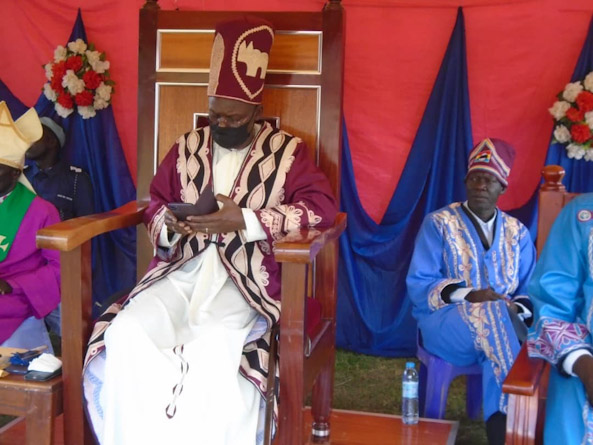Constitutional court upholds Okune election as Lango cultural leaders.
The Constitutional Court of Uganda has dismissed a petition which sought to annul the election of Eng Dr Moses Michael Odongo Okune as Lango cultural leader (Won-Nyaci) after it failed to pass legal tests.
The court upheld the decision of the High Court in Lira District, that Dr Odongo was duly elected and installed as Lango traditional leader.
Krispus Ayena Odongo, the petitioner said the Lango Cultural Foundation (third respondent)’s purporting to elect and its attempt to install the former executive director of Uganda Road Fund (fourth respondent) as the duly elected Won-Nyaci was unlawful.
According to him, the Lango Cultural Foundation, using a constitution allegedly promulgated under the provisions of the impugned Institution of Traditional or Cultural Leaders Act, 2011, was inconsistent with or in contravention of the constitution. For instance, Mr Ayena said at the time of Dr Odongo’s election, the issue of traditional or cultural leaders of Lango had not been resolved.
The prolonged conflict at Lango cultural institution culminated in the election of Dr Okune as the paramount chief in 2016.
“At the time of the fourth respondent’s as traditional or cultural leader of Lango, Parliament had not passed a law prescribing a method for resolving the issue of traditional or cultural leaders in Lango,” he said in a Constitutional petition number 14 of 2017.
The lead judgement by Justice Irene Mulyagonja, as well as the partially dissenting judgment of Justice Stephen Musota all suggested that Mr Ayena was fighting a losing battle.
Lady Justice Monica K. Mugenyi agreed with both Justice Mulyagonja and Justice Musota that “the import of clauses (1) and (5) of Article 246 of the Constitution read together is to make provision for the establishment of traditional or cultural leaders in areas where they did not exist before the 1995 Constitution”.
“It seems to me that a traditional leader or cultural leader under Article 246 (6) would arise in two instances: either as a hereditary descendent of royal lineage in accordance with custom, tradition or usage, or purely by consent of the people s/he leads without recourse to their customs, traditions or usage. That would be the literal interpretation of that constitutional provision,” she said in her ruling on December 2, 2022.
Justice Mugenyi further said to propose that a traditional or cultural leader could emerge purely by the consent of the people without being by birth or descent a member of their community would be to “peddle an absurdity”.
“Consequently, applying the golden rule of interpretation that seeks to avert such bizarre interpretations, I am in complete agreement with my esteemed sister and brother that even where a people consent to a traditional leader, that leader should be born of or descended from their community. That would appear to be the import of section 5(2) of the Institution of Traditional or Cultural Leaders Act, 2011 that restricts the installation of traditional or cultural leaders to persons that derive allegiance from birth or descent,” she ruled.
By Arao Denis
